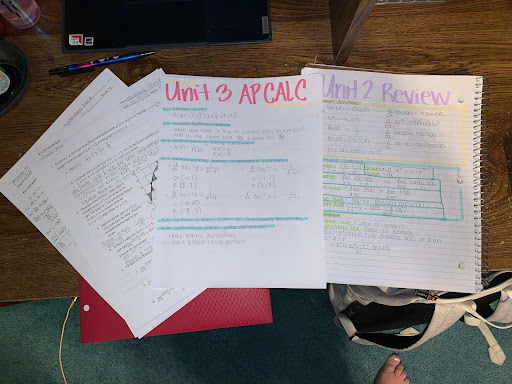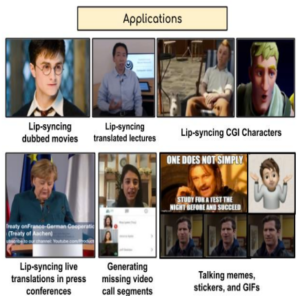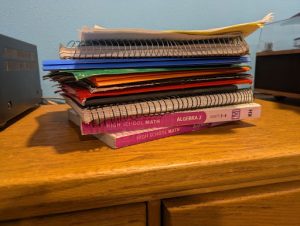Punished for Retake?
December 15, 2021

Students in this day and age are extremely stressed out. They have so many things to worry about like jobs, social relationships, and the pressure to get good grades. Getting good grades isn’t always easy so they need some help to accomplish this goal. Retakes are a prime example of a tool students use to raise their grades. However, these retakes require special procedures for every class.
Most classes are like the Social Studies department. The syllabus says that students always have the opportunity to retake and that the teacher will take the higher score.
However, the math department has a very different retake policy. The math department syllabus says that the final grade will be an average of the 2 scores (original test and retake test) and the average score will not be above a 90%. It will also be “slightly” more difficult than the original.
The math department’s retake policy causes unnecessary stress on students by creating an obstacle to success and could be modified to help students instead.
The Retake Policy is Concerning
The retake policy of the math department has caused some concerns in students from the moment they read the syllabus. Not only is it a concern for students, but it is also becoming a barrier to their success.
When asked if the math department’s retake policy discourages students from retaking tests, Ellisha Mack, SPASH senior and AP Calculus student says “yes, because I am afraid that I will do worse because it also averages the two scores. It makes me more anxious for the first test, and it makes me feel like the first test is do or die.”
Anxiety is a major problem stemming from the math retake policy. Students feel like everything is counting on the first test causing anxiety. This leaves the door open for students to make more mistakes they wouldn’t normally make when they are relaxed. Not only does the policy create an environment where students are anxious, but it also creates a discouraging environment.
Madi Laabs, SPASH senior and Algebra 3 student, says “The retake policy kind of upsets me because even if I got a 100 on my retake but got a 70 on my original, that would only average to a B. When I study for a math retake, it makes me not want to put in the work because I know that it will only be the average.”
If students do not perform well on the original, they are discouraged from putting in work on the retake. They feel as if they have already been beaten. Why put your heart and soul into studying for a retake and relearning the material when you cannot reach your deserved score for all your studying?
In “Why Should We Allow Students to Retake Assessments?,” Thomas R. Guskey argues,
Certainly, students who initially did well should be recognized for their success and given opportunities to extend their learning through stimulating enrichment activities. But if the grade’s purpose is to describe how well students mastered specific learning goals, and if students engaged in correctives eventually demonstrate the same high level of mastery, don’t they deserve the same high grades?
The purpose of grades is to demonstrate mastery. Mastery can come easier to some students and very hard to others. Whether mastery comes easy or hard, students who reach it should deserve the same high grades.
Better Alternatives to the Policy
Students are faced with many challenges in school, but retake policies don’t have to be one. There is a better way of retaking tests. Thomas R. Guskey, professor emeritus in the College of Education at the University of Kentucky argues that “students who engaged in correctives be given a second, parallel formative assessment for two reasons … it gives students a second chance at success and, hence, has great motivational value.”
The test environment of the math department doesn’t have to be discouraging. We can turn it into motivation. With a second chance to reach mastery and achieve the coveted high grade, students will be more motivated.
This is confirmed by Madi Laabs, SPASH Senior and algebra 3 student, “Take the best score out of the two. This would encourage students to do better and push themselves.” Students will be more motivated if they know they aren’t going to be punished just for needing a second try. They will work harder and have a better attitude about it.
Chloe Kindler, SPASH junior supports this, “Junior year is already hard enough and I am trying my best to study hard to get good grades. I should be able to study hard to earn that good grade even on the second try.” Their work should be reflected in their scores, and they shouldn’t be penalized for just needing a second try.
Teacher’s Perspective
The math department’s retake policy, although very different from other classes, is said to have many benefits that some students don’t realize.
In response to retakes being harder than the original test, Ms. Bowling, Head of the math department, says, “students have now seen the material in class, on a review, and on the test. Additionally, the students taking the retake received additional support in order to do the retake.” After the first test, the lessons,and the review, teachers argue that students should know what they are doing. They think that this allows them to give harder retakes, but if the student needed the retake in the first place, then they must not understand the material. Therefore, why make the retake harder when they didn’t even understand the original?
When asked why the department averages the two scores, Bowling says, “that was decided because we were finding some students were not preparing for the original test at all, coming in, looking over it and then using it to prepare for the retake.”
Although it is true that some students don’t prepare well for the original test, this policy applies to all students, including those who do study and just don’t understand. Why punish all students when there are few that just don’t prepare well?
Lastly, when asked why students cannot score above a 90% on the retake, Bowling states, “Retakes add additional work for the teachers, creating another assessment to create and grade, if students were earning As on their original assessment, they probably do not need to do a retake in the first place.”
Although true that a student with an A probably doesn’t need a retake, students who don’t have an A still deserve the opportunity to earn one. Teachers should want to help their students no matter how much work it takes to make a retake. Taking the time to fix mistakes now, could make learning faster in the future as the ideas build upon each other.
Taking Down the Barriers
Students at SPASH are stressed out by the retake policy of the math department. With COVID, students are already doing so much. They are working and trying to keep up with school. This retake policy is just another bit of stress to add to the pile. It causes some students to be stressed when they should be learning. It is an obstacle to learning, when school is the place to make learning easier. If we want students to reach their highest potential, we should take away the barriers to success.




































































